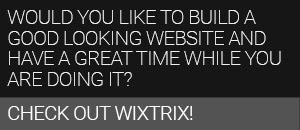Literature Review___A hierarchy of sources
We now come to a very important part of your work - the literature review. Before we go into where you can locate the sources that you need for this, we need to talk about what types of publications can be considered for this task and what their order of importance is. First off, you need to be aware that your survey has to come from peer reviewed sources, seminal texts, acclaimed books and book chapters and respected academic websites. So, the order of desirability of where you get your citations from, goes like this:
- Citation Indexed Journals. These are journals that have been integrated into one of the Thomson Reuter databases, either the web of science or the web of knowledge.
- Peer Reviewed Academic Journals. There are a lot of journals that have not been around long enough to become a part of the Thomson Reuter database, or that for various other reasons fall short of the criteria for becoming citation indexed with TR. The good ones amongst them will however belong to other indexing systems, such as for example Scopus. Note: Some journals will proudly proclaim that they are indexed by Google Scholar! This is nonsensical since google scholar will collect anything. Even stuff that I have on my personal website is in there!
- Chapters in Books. These are taken from books of related essays that are put together by an editor who works together with a board of peer reviewers.
- Conference Proceedings. A good conference will provide a publication with an ISBN or ISSN number which is the collection of academic papers published in the context of the conference. They are usually distributed as printed volumes or in electronic form either before the conference opens or after it has closed. While most proceedings are not citation indexed, others are - and even at the level of the web of science/knowledge. A lot of proceedings are also published as books, such as for example the Springer Lecture Notes in Computer Science series. Note: Papers published in proceedings and articles very often also have doi number (digital object identifier) attached to them when you look for them online. This is a character string used to uniquely identify an electronic document. Metadata about the object is stored in association with the doi name and this metadata may include a location, such as a URL, where the object can be found.
- Books. While a monograph published by a reputable academic publisher is perfectly acceptable, a lot of books are privately funded and thus not peer reviewed by an editorial board. These are not considered to be too terribly significant.
- Encyclopedias. The general ones (such as for example Britannica) are not deemed to be very desirable, for the simple reason that they usually lack a sufficient depth of content.
- However, there are also domain-specific, scientific encyclopedias in which specialists of a field write in-depth, lengthy entries that are published under their own names, together with the name of the editor, as well as the date of authorship as part of the meta-data. Needless to say, these texts are very valid citation material indeed.
- As for wikipedia - that one is a big no no I'm afraid, no matter how wonderful the article you find there may turn out to be. As you can see I am using wikipedia quite a bit whilst preparing this blog, and it really is an excellent resource for just such a purpose. The problem with wikipedia, when it comes to academic writing, is that 1) there is no identifiable board of editors, and 2) contributions are made anonymously, which effectively stops it from being an academic source that can be "quoted" since a quote will always need an author and a date. However, wikipedia is excellent as a start out point, especially through the material that it provides to help you look further that is given through links. So, by all means, use wikipedia to conduct a preliminary search but then proceed from there to the references that you will usually find on the topic at the bottom of the page and which, in their turn, will probably lead you even deeper into your search.
- Web pages. You can quote from a solid, academic web page in which the material will routinely be monitored by the university or institution that it belongs to, provided that your references do not all come from web pages. If you have 1 or at most 2 web page references in a total of say 10 that is OK. If you have 3 or 4 out of 10 you are in trouble, I would say. As for blogs and personal websites (even those by esteemed academicians), these are not acceptable as reference material since there is no peer review or outside assessment involved when it comes to what gets put on a blog or on a personal website.
As you can see from this list, the most desirable publications to cite from are journal articles. Books as monographs (except seminal texts or books published by a good academic publishing house with an editorial board) are far less valuable, although book chapters are good, as are conference proceedings. This same hierarchy also applies to your own publishing activity: Publishing an article in a citation indexed journal ranks highest, next are peer reviewed journals and book chapters and then come proceedings - unless you manage to publish a book with a very reputable academic publisher, which is then valuable also of course.
Note: Please click on all the links above since these will lead you to definitions of terms that relate to publishing (such as peer review, ISBN, ISSN, doi, etc) and are therefore important for you to understand.

